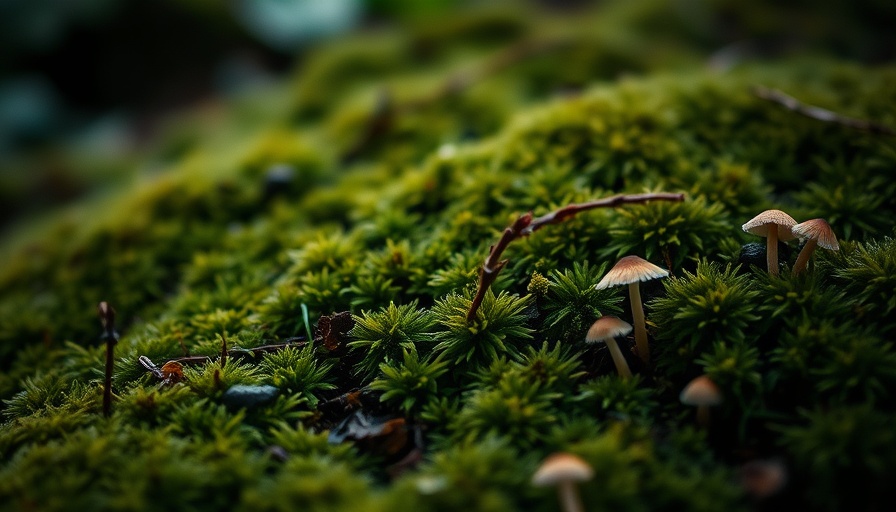
The Rise of Fungi: Understanding Their Unique Role in Our Ecosystem
The recent push for fungi to be classified as a separate category in conservation policy is more than just words on paper; it represents a fundamental shift in how we perceive the interconnectedness of life on Earth. At COP16 in October 2024, the call from Chile and the UK to include 'funga' alongside flora and fauna underlines the invaluable contributions of these organisms to our ecosystems. Fungi are omnipresent and vital, encompassing approximately 2.5 million species that can only enhance our understanding of biodiversity.
Why Fungi Matter: More Than Just Decomposers
Fungi’s roles extend beyond mere decomposition; they serve as life-givers. Unlike plants, which rely on sunlight and chlorophyll, fungi derive their nourishment from decaying organic matter, making them unparalleled recyclers in nature. This unique ability positions them as critical agents in nutrient cycling, allowing soil to flourish with vitality, ultimately supporting plant life and, in turn, the animal kingdom—including us.
Fungal Relationships: Symbiosis at its Best
The world of fungi is characterized by relationships defined by mutualism, parasitism, and saprobic lifestyles. Mycelium—the filaments of fungi—creates symbiotic networks with plant roots, facilitating nutrient absorption in a reciprocal relationship that enhances growth. The depth of these connections is often overlooked, yet understanding them could transform agricultural practices and ecological conservation strategies.
Breaking Misconceptions: Fungi Beyond Pathogens
Traditional Western science has almost exclusively highlighted the pathogenic potential of fungi, which obfuscates their importance as fundamental building blocks of ecosystems. Fungi are not just threats to crops or humans, but rather foundational allies that sustain life. Their role as agents of decomposition and reformers of soils reminds us that they are indispensable allies in maintaining ecological balance.
Fungi and Human Health: The Hidden Benefits
In our health and wellness journeys, the contributions of fungi often go unnoticed. With applications in nutrition—from functional mushrooms like reishi and lion's mane to edible varieties enhancing meals—these organisms offer numerous benefits, including potential immune support and cognitive enhancement. Fungi might also become key players in developing new vaccines and antibiotics, representing a frontier in health science.
Cultural Significance: Fungi in Our Lives
Fungi have deeply influenced human culture, from culinary practices to traditional medicine. Historical uses of mushrooms in rituals among indigenous cultures highlight their spiritual significance, while modern kitchens embrace gourmet varieties that elevate gastronomy. By recognizing fungi’s duality as both food and medicine, we can cultivate a more holistic relationship with the natural world.
Future Directions: Fungi in Sustainability and Conservation
The acknowledgment of fungi as a key element within ecosystems opens doors for future research and sustainable practices. As we address climate challenges and explore regenerative agriculture, it becomes clear that nurturing our fungal companions can significantly impact the health of our planet. By integrating fungi into permaculture and green building strategies, we can foster a more sustainable and resilient environment.
The universality of fungi—as persistent colonizers of soils across the globe from extraterrestrial terrains to climates on Earth—asks for a cultural reckoning concerning their ecological importance. The proposed classification of funga has the potential to heighten public awareness and inspire conservation efforts underpinned by respect for these unseen entities that play a substantial role in our survival.
Actionable Insights: Engaging with the Fungal Kingdom
Consider adding mushrooms and other fungi into your diet to experience their direct health benefits. Whether through adopting a gourmet cooking style or exploring herbal remedies derived from fungi, this exploration of the fungal kingdom can contribute to a holistic diet in line with sustainable living practices.
 Add Element
Add Element  Add Row
Add Row 



Write A Comment